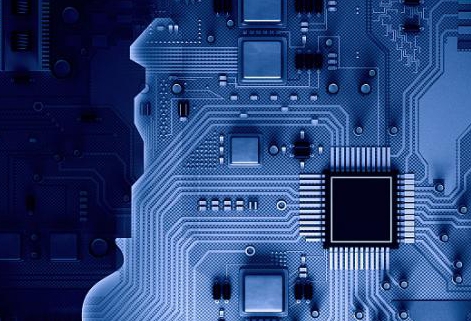Engine of AI: Innovations in CPU, Storage, and AI Chips for Hardware
The surge of digital transformation is powering the swift market capture of Artificial Intelligence (AI) hardware products, which are quickly becoming the darling of consumers and businesses alike. During the 618 shopping festival on JD.com this year, AI hardware products have particularly distinguished themselves with remarkable sales performances, indicating a comprehensive boom in the AI hardware market.
Overview of AI Hardware Products

With the relentless advancement of AI technology, especially the expansion of AI computing power from the cloud to edge devices, the market for smart terminals has ushered in new opportunities for development. High-computing devices such as AI smartphones and AI PCs have not only forged a new track for AI hardware but also continuously deepened their application scenarios, becoming the main driving force for market growth. IDC forecasts that in the coming years, the market share of AI hardware products will continue to expand, emerging as a key development area in the industry.
During JD's 618 event, AI hardware products like Xiaomi Redmi K70, Lenovo Xiaoxin Pro16, and iQOO Pad2 Pro have been highly sought after by consumers. These products not only meet user performance needs but also showcase their unique features and strengths in AI capabilities.
Technical Breakdown of Core Components
The innovation and development of AI hardware products are inseparable from the technological progress of core components. Here is a detailed introduction to some popular AI hardware products and their main chip composition and functions.
1. Xiaomi Redmi K70 AI Smartphone: Equipped with the Snapdragon 8 Gen 2 mobile platform, it features LPDDR5X operating memory and UFS 4.0 storage, with a built-in 5000mAh battery supporting 120W fast charging. These high-performance CPU and storage solutions provide robust hardware support for AI applications.
2. iQOO Pad2 Pro AI Tablet: Utilizes the MediaTek Dimensity 9300+ flagship chip, offering various memory and storage combinations, with a built-in 11500mAh battery and 66W fast charging support. These configurations ensure the device's high efficiency and long battery life when handling complex AI tasks.
3. iFLYTEK AI Learning Machine P30: Built-in with an 8-core high-frequency AI learning chip, equipped with 6GB+256GB large storage and a 7500mAh battery, providing AI education functions such as one-on-one tutoring.
4. iFLYTEK Meeting Earphone Pro2: Adopts 48dB deep noise reduction technology and AI speech recognition technology, supports real-time translation in 32 languages, and has a built-in intelligent meeting assistant, demonstrating the powerful capabilities of AI in improving work efficiency.
5. iFLYTEK AI Smart Mouse AM50: Equipped with iFLYTEK's Xinghuo cognitive large model, it has functions such as AI writing, real-time translation, and AI Q&A, providing users with intelligent work assistance through voice or text interaction.
6. VIVO Watch GT AI Smartwatch: Equipped with the self-developed Lanhe operating system, it has built-in professional sports modes and comprehensive health management functions, reflecting the application of AI in wearable devices.
7. Huawei Smart Lock: Uses dual-engine AI fingerprint unlocking technology, combined with dynamic learning engines and deep super-resolution engines, achieving fast and accurate fingerprint recognition.
8. Meizu MYVU Smart AR Glasses: Equipped with the Flyme AR operating system and Flyme AI large model, supporting multimodal interaction and rich AR functions, demonstrating the application potential of AI in the field of augmented reality.
Innovation Driving Development

The rapid development of AI hardware products is attributed to the innovation of core components such as CPUs, Storage, and AI chips. Through innovation, AI hardware products can provide faster processing speeds, higher energy efficiency ratios, better user experiences, and adapt to the ever-changing needs of AI applications.
● CPU Innovation: Multi-core CPU design and integrated AI accelerators, such as Intel's DL Boost, significantly improve the efficiency of machine learning tasks. CPU designs increasingly focus on energy efficiency to extend device battery life.
● Storage Innovation: High-speed storage technologies like NVMe SSD offer faster data read and write speeds. Intelligent storage technologies optimize data storage and management through data compression, deduplication, and automatic tiering.
● AI Chip Innovation: The design of dedicated AI processors, such as Google's TPU and NVIDIA's Tensor Core GPU, provides extremely high computational density and hardware acceleration for specific operations like convolutional computations.
● Integrated Innovation: System-level optimization ensures the collaborative design between CPUs, storage, and AI chips, achieving optimal system performance and energy efficiency. The trend of software-defined hardware allows hardware to flexibly adapt to different AI workloads.
Future Outlook
The innovation and development of AI hardware products are propelling the industry towards faster processing speeds, higher energy efficiency ratios, and better user experiences. As technology continues to advance, future AI hardware products will become more intelligent, efficient, and demonstrate their unique value and potential in more fields.
Recommended Models
● The 10CL055YF484I7G is an FPGA based on the Intel/Altera Cyclone 10 LP series. The FPGA has a wide range of uses, especially in applications that require a high degree of flexibility and customizability, such as communications and networking, industrial control, automotive and transportation, as well as consumer electronics, military and aerospace.
● The XC6SLX9-3TQG144I FPGA chip is produced by Xilinx Corporation and belongs to the Spartan-6 family. With 9,152 logic units and 715 LABs/CLBs, it offers a highly flexible solution for digital circuit design. Widely used in communication, industrial automation, medical equipment, aerospace and other applications with high reliability and safety requirements.
● The R35204MTRPBF is a dual-circuit digital multiphase step-down controller manufactured by Infineon with 3+1 dual outputs that provide fine voltage regulation and higher efficiency. Its use is mainly around the high performance CPU voltage regulation, in a fixed frequency regulator, by adjusting the time duty ratio of high and low levels in a cycle to achieve the control of the output voltage.
Website: www.conevoelec.com
Email: info@conevoelec.com







